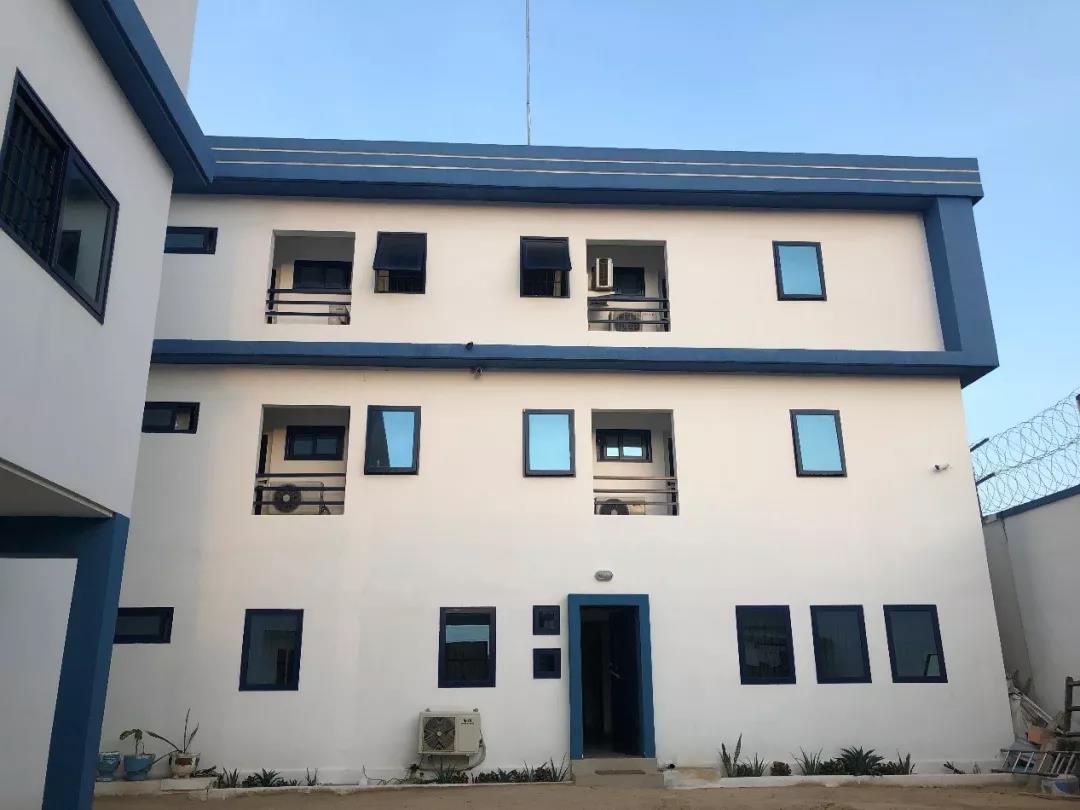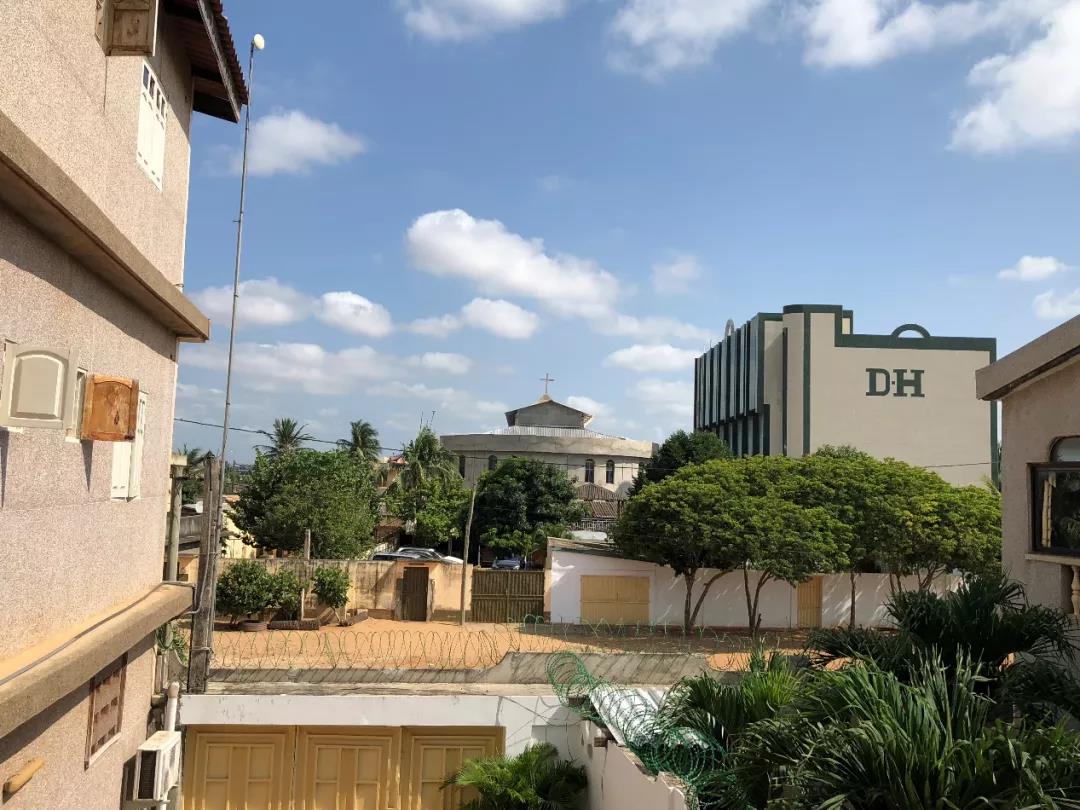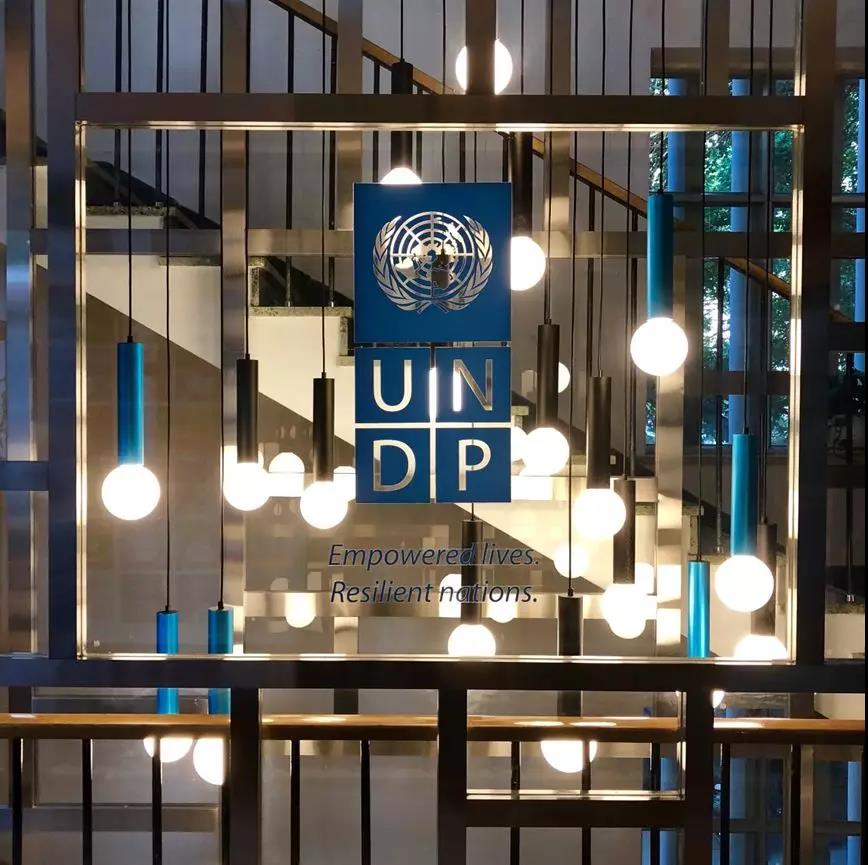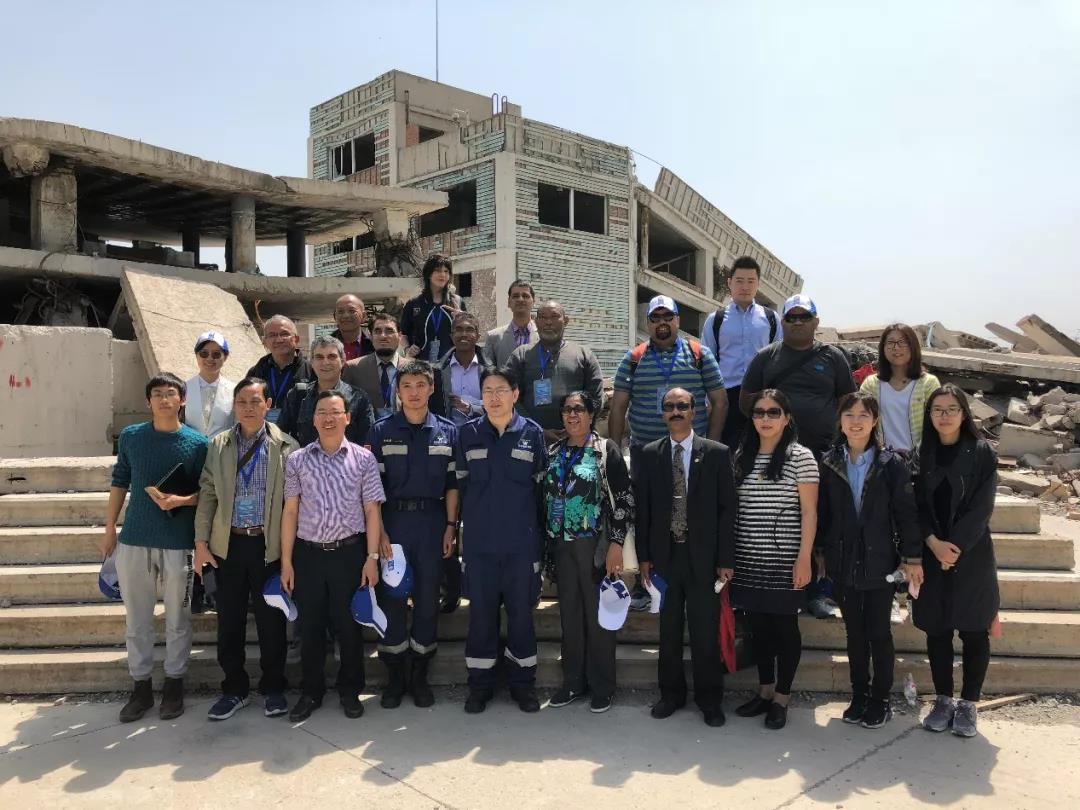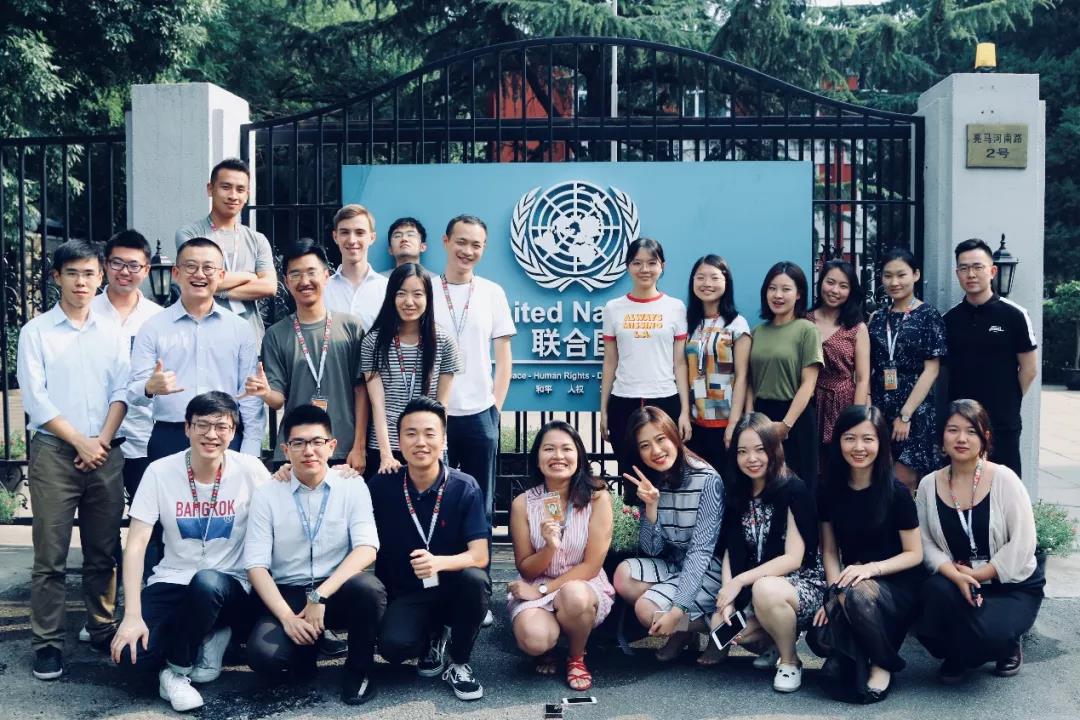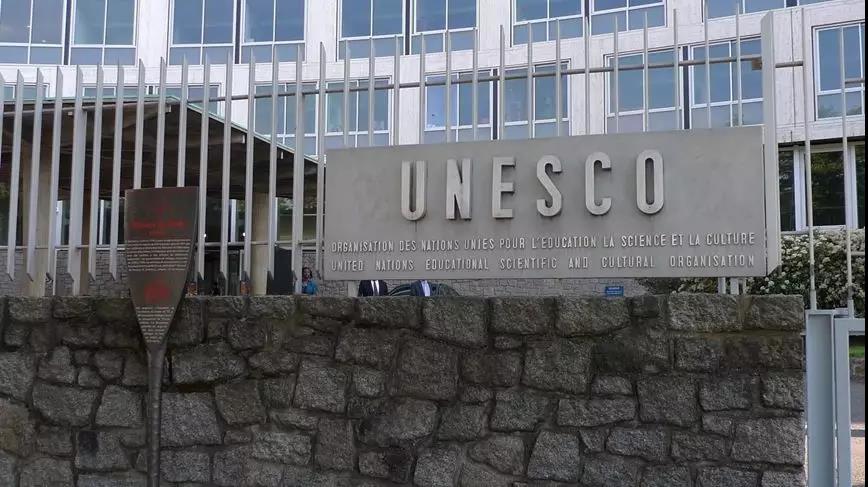Between dreams and reality: PKUers’ internships in the United Nations
May 21, 2019
Peking University, May 21, 2019: The following report is based upon the internship experiences of Xu Xuanling (from PKU Department of Philosophy) and Chen Zhenkun (from School of International Studies) who worked for the United Nations. Readers can learn how these two PKUers make their dreams come true in two different yet similarly resolute ways.
For Xu Xuanling, an undergraduate from PKU Department of Philosophy, going to Africa for an internship at the United Nations is by no means impulsive.
In 2016, she attended the summer course at the University of Munich and visited the Vienna office of UN, one of the four global headquarters of the United Nations. This is her first time forging ties with global governance and international organizations.
In the second semester of the fourth year at undergraduate level, she took the course “Theories and Practices of International Organizations” given by Ha Wei, teacher of the School of Education. The most notable feature of this course is that the students in the course come from diverse cultural backgrounds. “It is similar to a melting pot,” Xu said. When they were discussing the issue of the reform of the United Nations Security Council, Xu Xuanling intuitively perceived the collision and the integration of different viewpoints from students who come from the United States, France, Russia, Germany, Japan, South Korea, and other countries. At the same time, this course involves a lot of practical activities. In the last semester as an undergraduate, she spent her time flitting between the classroom, the Asian Infrastructure Investment Bank (AIIB), and the United Nations Development Programme (UNDP) office in China, through which she gradually accumulated abundant knowledge and experiences while being an intern at international organizations.
Another factor that prompted Xu’s decision of choosing UN for internship lies in her profound interest in Africa. At that time, Xu believes that Africa is full of possibilities. Although in most people's understanding, West Africa is just hot and humid – mosquitoes are raging, diseases are common, and conflicts are constantly brewing – but to Xu Xuanling, it is full of unknown and challenges. With a strong passion for exploration, Xu applied to work at Lomé, hoping to make full use of the gap year after the graduation, break through her comfort zone and to walk into the real Africa. “This would be my first trip to Africa and I believe that it would be very intriguing.” said Xu Xuanling.
However, after the first week of work, Xu Xuanling found that the imagined grand United Nations mansion has been out of sight, and it was replaced by a small three-story building with white walls and blue roof. Instead of having enough manpower like that in the headquarters, there is only around 20 members of staff in the Lomé office, so each person has to undertake several different tasks every day. This is understandable, because the work at 's United Nations Regional Centre for Peace and Disarmament in Africa (UNREC) includes dealing with the affairs of 54 United Nations member states in Africa. During the internship, Xu Xuanling gradually saw the necessity of understanding the sub-regional cooperation mechanism in Africa, of knowing the structure of global disarmament and arms control, and of overcoming the technical difficulties of project planning.
The office building where Xu Xuanling worked during her internship in Africa
Besides, compared with the challenges at work, Xu was even more deeply impressed by the problems popping up in the daily life. Togo is a French-speaking country, one of the least developed countries in the world. Even in the capital, namely Lomé, English is not widely spoken. Although she had fully considered the inconvenience that language barriers might bring to her life and work, Xu still experienced an “unprecedented crisis”. As one of the only two beginners in French in the entire office, Xu can hardly communicate in French, except from a few simple words for greeting.
“It’s very difficult for me to buy things alone in the very beginning.” Xu sometimes could only use gestures in the communication when doing shopping. Moreover, reading documents written in French and adapting to the French-speaking environment in the office became a huge burden to Xu.
Concerns about food safety also plagued her. The locals like to eat the dough. They grab it with one hand, stir it in the soup for a few times, and then put it to the mouth. Due to the limited sanitary conditions, diseases such as cholera and typhoid are always threatening the local residents. After hanging out for a long time, Xu and the other interns finally managed to find a comparatively decent restaurant in the local community. They ate takeaways from that restaurant on weekdays and cooked their own meal when they were free to do so.
She also worried about her personal security. In Africa, Asians are easily spotted from a crowd of people. “When I walk in the street, everyone would glimpse at me; wherever I go, people there would remember me.”
Since the United Nations agency in Lomé did not provide staff dormitories, Xu and other interns rented a house in a local residential area. In Lomé, public transportation is scarce. Therefore Xu usually rode a bike or hailed a taxi with her colleagues for commute. Within half a year in Lomé, Xu went out alone only twice. Even when she could communicate with the locals more smoothly, Xu still paid special attention to personal security.
Admittedly, working for international organizations sometimes can be very dangerous. A Hungarian colleague of Xu has just finished his two-year work in Somalia where the Somali war lasted for several years and claimed nearly half a million lives. Although some areas have saw ceasefire, people were constantly threatened by landmines and bombs left there. When the Hungarian man was in Somalia, he worked for several non-profit organizations and did mine-sweeping. When he was asked if he was worried about losing his life, he always emphasized the professionalism of the job, saying that “We are not here to sacrifice, but to come to work. We had to receive complete training before we can enter the field.”
Despite the difficulties of living and the pressure of work, Xu has received more than expected “African passion” during the internship. The community where she lived was close to churches and mosques, so the daily chanting of hymns and prayers were endless. Her landlord Alex is passionate about parties and music, and often invited his friends to come for small concerts. When the children were playing football in the downtown area, Xu saw Alex even rush to them and play together.
On a Christmas Eve, Xu went to the apartment of a colleague from Burkina Faso (Togo´s northern neighboring country). There, Africans, Europeans, and Asians sat together to share Christmas dishes and happy stories with each other. Xu said, “For westerners, Christmas is a very important day. When we got together, we had the feeling of being at home even when everybody was far away from home at that time.”
After meal, people sang and danced together. When they were to leave, everybody hugged each other. After having returned to Togo, Xu’s landlord also hosted a lively Christmas party, in which everyone sang and danced with smile.
After six months of internship, Xu returned to Peking University with her new understanding of Africa and her work experience in the United Nations. She served as a teaching assistant for three courses related to international organizations and international development, hoping to convey the concept and practice of global governance to more young students.
The residential area where Xu Xuanling lived during her internship in Africa
Just like Xu Xuanling, Chen Zhenkun, an undergraduate from the School of International Studies enrolled in 2015, decided to become an intern in the United Nations. In his mind, international organizations are ideal institutions that aim to promote the development of the whole world, which exactly suits his personal views of a great career.
During Chen’s study, the course “Introduction to the European Union” given by Professor Lian Yuru deeply impressed him. The fact that the European Union was established on the reconciliation between ever hostile France and Germany after the World War II actually gave Chen Zhenkun great enlightenment that it is possible to maintain long-term peace among countries and to keep constant development of all mankind within the framework of international organizations. The United Nations, as the biggest international organization across the world, has mature organizing structure and working system. Therefore, the idea of becoming an intern in the UN gradually took root in Chen’s mind.
In March 2018, Chen Zhenkun became an intern of South-South Development Cooperation group within the UNDP (United Nations Development Programme) China office. Daily commute had already taken up a large sum of Chen’s time. Besides, he had to face the pressure from work all the time. That is, whenever emergencies occurred, he must work overtime until everything was sorted out.
“I went to the office at around 10 am on every Sunday, and continuously worked until 1 or 2 a.m. on Mondays.” Chen said. He did plenty of repetitive jobs including receiving e-mails, drawing tables, sorting files and delivering materials, etc. Although the work was kind of dull yet detail-oriented, he still considered it meaningful. He even made a joke on this work with his colleagues by saying that the repetitive work could give their brilliant brains a nice rest.
Nevertheless, one could only realize the significance of monotonous paperwork at the time when he or she communicated with others in real life. When Chen Zhenkun participated in the fieldwork of the UN, by the first time, he felt that the mountainous documents in the office could make a difference to the society.
The UNDP staircase that Chen Zhenkun walked by every day
In 2017, China and UNDP co-organized a training program about early warning system and post-disaster recovery planning in disaster risk management. Nepal, Bangladesh, Antigua, Barbuda and other countries vulnerable to severe natural disasters were invited to join in this program. Chen Zhenkun took part in the arrangement of the final conference and the visiting activities of this event. Since the recording and collating work of the conference was rather heavy, Chen and his colleagues had not finished summarizing the documents until 3 a.m. at the first night. Furthermore, as interns were required to arrive before 8 a.m. the next day, Chen Zhenkun had to rush to the assembling place wearing a pair of dark circles under eyes and then accompanied the delegates to the National Earthquake Emergency Training Base in Fenghuangling, Beijing.
Delegates in front of the Fenghuangling National Earthquake Emergency Rescue Training Base
“Those methods and technologies that have matured in China may still be fresh to these countries.” Chen says. Therefore, this program was technically significant for the officials coming from the countries lacking disaster risk management. An official from the government of Bangladesh, who was in charge of the post-disaster recovery work, was deeply impressed by Chen Zhenkun. Since earthquake and tsunami are common disasters in Bangladesh, yet, pre-disaster warning system, post-disaster rescue and recovery mechanisms were very weak by comparison. Consequently, it was urgent for the government to improve the ability to deal with natural disasters. After learning about the regular training held in the National Disaster Reduction Center of China, this official hoped that Chen Zhenkun could help her ask if the government of Bangladesh could send police officers or officials to China to learn the countermeasures against natural disasters.
Interns at the UN office
Headquarters of the UNESCO
In May 2018, Chen Zhenkun decided to continue his study in France. This decision was made in only a flash of thought. In early August 2017, Chen had already gone to Sciences Po as an exchange student for a semester. Coincidently, the headquarters of the UNESCO (The United Nations Educational, Scientific and Cultural Organization) was located on the way that he would pass by every day. Whenever there were important meetings held at the huge ring square, plenty of staff could be seen walking in a rush or discussing some issues with others there, as well as the flags of hundreds of countries floating towards the same direction outside the square. This fall, he will walk through the huge ring square of the UNESCO headquarters in Paris again. Whereas, he hopes he can be a member of UNESCO at this time.
Written by: Li Yangyang, Qiu Tianjie
Edited by: Wang Nini, Hu Rong
Source: PKU Youth (Chinese)
